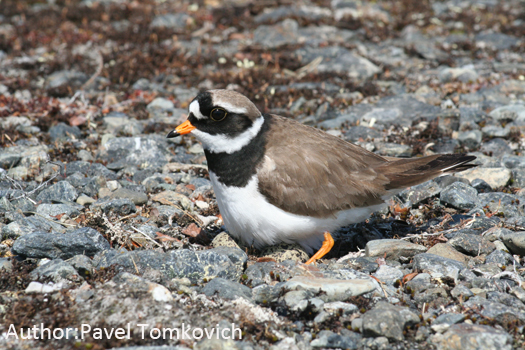Parental care improves the survival of offspring and therefore has a major impact on reproductive success. It is increasingly recognized that coordinated biparental care is necessary to ensure the survival of offspring in hostile environments, but little is known about the influence of environmental fluctuations on parental cooperation. Assessing the impacts of environmental stochasticity, however, is essential for understanding how populations will respond to climate change and the associated increasing frequencies of extreme weather events. Here the influence of environmental stochasticity on biparental incubation in a cosmopolitan ground-nesting avian genus is investigated. Data on biparental care in 36 plover populations (Charadrius spp.) from six continents was assembled to investigate how average temperature, temperature stochasticity and seasonal temperature variation during the breeding season influence parental cooperation during incubation. Data show that the share of parental care carried out by males increases with mean temperature and between-year variation in temperature during daylight hours and that geographical variation in the division of care within species is largely explained by local ambient temperatures. Main conclusions suggest that the degree of flexibility in parental cooperation is likely to mediate the impacts of climate change on the demography and reproductive behaviour of wild animal populations. informacion[at]ebd.csic.es: Vincze et al (2017) Parental cooperation in a changing climate: fluctuating environments predict shifts in care division. Global Ecol Biogeogr doi:10.1111/geb.12540
http://onlinelibrary.wiley.com/doi/10.1111/geb.12540/abstract  Latest News
Latest News
 Las altas temperaturas están provocando que las lagunas y las marismas de Doñana pierdan agua rápidamente
Las altas temperaturas están provocando que las lagunas y las marismas de Doñana pierdan agua rápidamente
La superficie inundada en la marisma es de un 78% pero la profundidad es escasa. Por otra parte, sólo el 1,9% de las lagunas temporales están inundadas. Las precipitaciones crean una oportunidad...
 Traffic noise causes lifelong harm to baby birds
Traffic noise causes lifelong harm to baby birds
A study with CSIC participation reveals for the first time that car noise harms individuals throughout their lifetime even years after exposure
 Illegal wildlife trade, a serious problem for biodiversity and human health
Illegal wildlife trade, a serious problem for biodiversity and human health
A research team led by the Doñana BIological Station and the University Pablo de Olavide have detected wild-caught pets in 95% of the localities in the Neotropic and warns of the risk of zoonotic...
 Urbanization and loss of woody vegetation are changing key traits of arthropod communities
Urbanization and loss of woody vegetation are changing key traits of arthropod communities
Urbanization is favouring smaller beetle species and larger spider species with greater dispersal capacity.
The loss of woody areas is linked to a decline in the duration of the activity...
The loss of woody areas is linked to a decline in the duration of the activity...
 Blood lead levels in an endangered vulture species decreased following restrictions on hunting practices
Blood lead levels in an endangered vulture species decreased following restrictions on hunting practices
Canarian Egyptian vulture was on the verge of extinction at the end of the 20th century. At that time, studies revealed that lead poisoning was a serious problem for the population’s survival. The...
— 5 Items per Page
 Asset Publisher
Asset Publisher
Back






